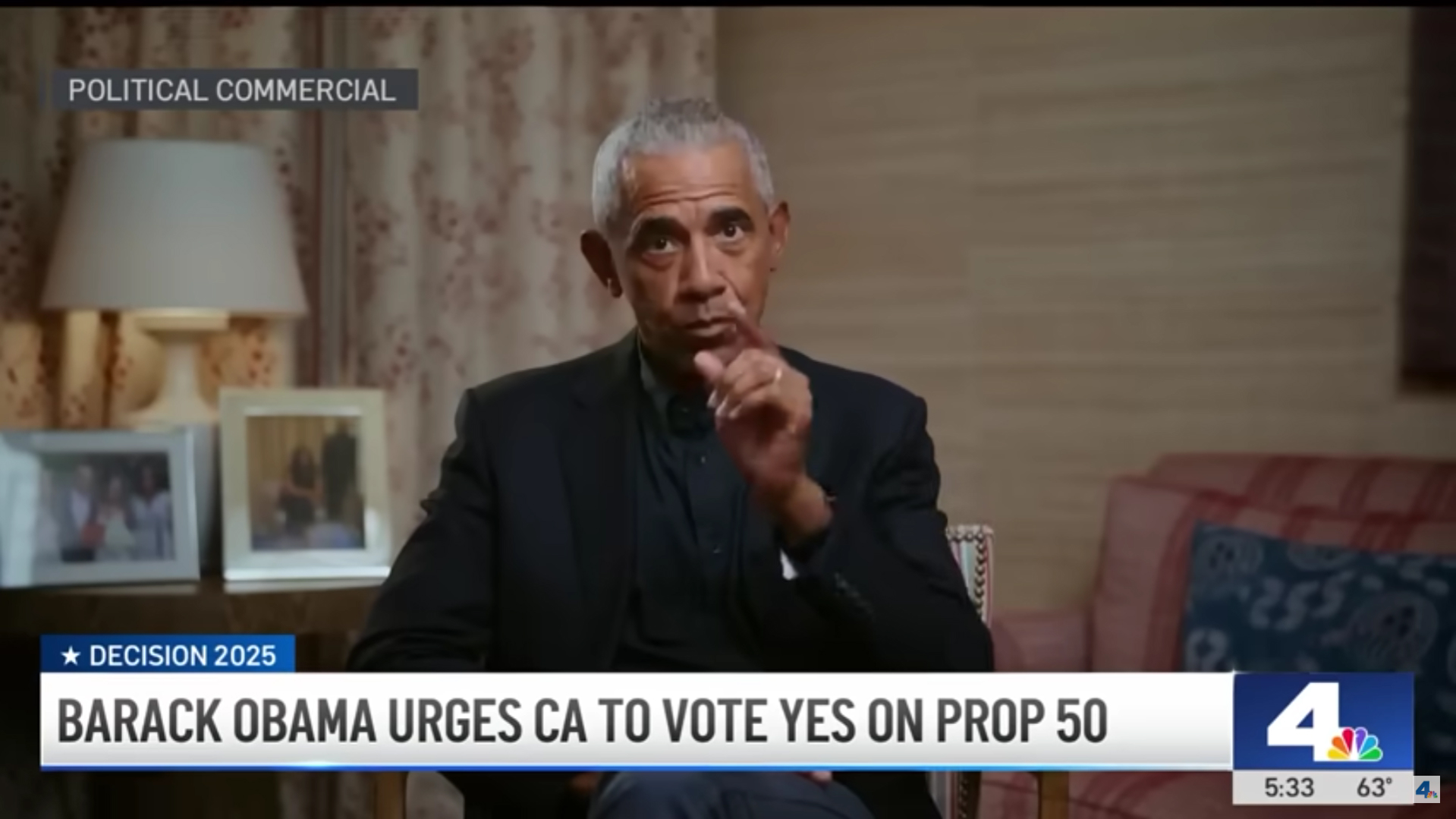Barack Obama has reappeared on television screens across California, starring in new ads urging voters to support Proposition 50, a Democratic-led ballot initiative that could overhaul how the state’s congressional districts are drawn.

Ahead of the November 4 vote, Democrats have spent $135 million over the last three months to promote the measure, underscoring its significance in the battle over who controls the political map of the state.
Proposition 50 asks voters whether to transfer redistricting authority for California’s 52 U.S. House districts from the California Citizens Redistricting Commission (CCRC) to the state legislature. Since 2010, the CCRC — an independent body established to draw districts based on census results — has been responsible for redistricting every ten years.
If approved, the measure would apply from the next midterm election through the 2030 midterm election, shifting that power from an independent commission to elected lawmakers.
Republicans have strongly opposed the proposal, calling it a partisan power grab. Rep. Young Kim (40th District) described it as “a secret redrawing of the map to favor Democrats” and accused the ruling party of trying to “neutralize a commission created by voters.”
The political outlet Politico, as cited in the Korean source, reported that the proposed changes could make five districts more favorable to Democrats.
Gov. Gavin Newsom defended the move, saying “Texas started this,” referencing redistricting initiatives by Republicans in that state. “We will not stand by while Donald Trump and the GOP consolidate power,” he said, arguing that a “blue state” like California must respond in kind.
The Democratic Congressional Campaign Committee (DCCC) unveiled its version of the redistricting plan on August 15, one day after Gov. Newsom announced plans to pursue Proposition 50. The DCCC then coordinated with Democratic legislators to introduce a bill placing the measure on the ballot, which passed just six days later.
Republicans, including State Sen. Steven Choi (37th District), criticized the process as rushed and lacking transparency. “Democrats did not consult with Republicans or disclose who drew the districts, and they made no effort to gather voter input through hearings,” he said.
The Democrats’ voter guide for Proposition 50 calls it “a vital check and balance against Trump’s dangerous agenda.”
If passed, Republicans could lose up to five congressional seats, further reducing their already small share—currently nine of California’s 52 seats. Critics argue that this could deepen the state’s political imbalance.
Rep. Young Kim countered that “Texas has always allowed its legislature to draw maps—California’s case is entirely different,” adding that “redistricting should never be used as a political weapon.”
An LA Times poll published on October 30 found that 60% of 8,141 respondents supported Proposition 50, while 70% of those planning to vote in person opposed it—suggesting an uncertain outcome.
Both parties agree that the result will shape California’s political landscape for years to come.
BY KYEONGJUN KIM [kim.kyeongjun1@koreadaily.com]
![SSA to scrutinize overseas travel of Social Security beneficiarie An illustrative image of Social Security beneficiaries traveling abroad. [ChatGPT-generated image]](https://www.koreadailyus.com/wp-content/uploads/2026/02/0202-social-security-100x70.jpg)


![Korean Canadian wins $11 million lottery jackpot Lee Tae-sung, a Korean Canadian man living in Alberta, Canada, won 15 million Canadian dollars lottery jackpot prize. [Screenshot]](https://www.koreadailyus.com/wp-content/uploads/2026/02/0202-rottery-100x70.jpg)